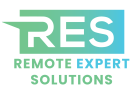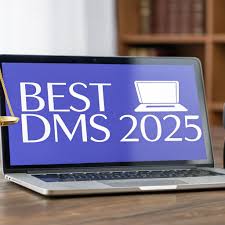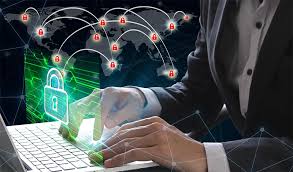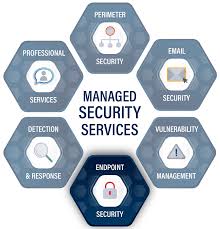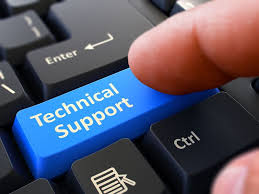In 2025, managing remote experts is no longer a trend—it’s the future of work in the U.S. With access to global talent across time zones, companies can scale faster, reduce overhead, and tap into specialized skill sets without geographic limitations. However, the real challenge is not hiring remote professionals—it’s managing them effectively. From seamless communication to performance tracking, this guide outlines how to manage remote experts like a seasoned leader, ensuring your team stays productive, engaged, and aligned with your business goals.
Understanding to manage Remote Experts Landscape
Remote work means your team operates virtually—often across multiple countries and time zones. Managing remote experts requires a deep understanding of cultural diversity, communication preferences, and flexible scheduling. These dynamics can foster innovation, but they also introduce challenges like miscommunication, isolation, and confusion in deliverables. U.S. companies that embrace inclusive remote work guidelines and invest in diversity training can build stronger, more cohesive global teams.
Set Clear Expectations from Day One
A successful remote expert begins with clarity. From day one, define your expectations around remote team performance, communication cadence, quality standards, and deadlines. Firm onboarding processes must include company culture orientation, measurement of performance metrics like productivity or deliverable quality, and documentation of communication norms. Providing Standard Operating Procedures (SOPs) sets transparency, minimizes micromanagement, and enables remote experts to own their roles confidently.
Communication Is Your Management Framework
Virtual environments demand robust communication strategies. You must establish a regular rhythm of standups and one-on-one check-ins via tools like Zoom or Google Meet and enable real-time conversations on Slack. Balancing structured updates (for reporting milestones) with informal chats (to boost morale) creates a sense of community. Emphasizing responsiveness, clarity, and active listening helps remote teams stay aligned and motivated, delivering better results for U.S.-based clients.
Harness the Right Remote Collaboration Tools
Effective remote expert management relies on robust remote work tools. Choose platforms that support transparency, efficiency, and accountability. For example, Trello, Asana, or ClickUp help with task delegation and progress tracking. Time monitoring platforms like Hubstaff or Toggl improve productivity insights, while BeyondTrust offers secure remote access control. A unified dashboard consolidates these tools to simplify workflows and data visibility across your team.
Cultivate Trust and Accountability
Manage remote experts requires a shift from tracking hours to observing outcomes. Trusting your team to deliver—and rewarding them for it—is critical. Avoid micromanagement and instead encourage ownership through clear deliverables and shared accountability. Recognize milestones publicly and foster engagement with team members into challenging projects. A positive culture with respect and recognition enhances employee retention and innovation.
Organize for Sustainability and Growth
Remote work demands organizational clarity. Use shared knowledge bases like Google Drive, Notion, or Confluence to house documents, SOPs, and meeting notes. Templates and automated task routines help maintain editorial and procedural consistency. Implement a synchronized calendar to make sure U.S. professionals across multiple time zones stay coordinated and avoid scheduling conflicts.
Master Time Zone Coordination
Working with remote experts across the globe introduces time zone challenges. Establish core overlapping hours where everyone is available for live interactions, while encouraging async communication elsewhere. Tools like World Time Buddy or Timezone.io make visual scheduling easy. Using shared documents and recorded walkthroughs ensures continuity and clarity, even when teammates are offline.
Provide Consistent Feedback and Recognition
Remote experts thrive on guidance and recognition. Regularly schedule one-on-one check-ins, quarterly reviews, and real-time feedback using platforms like 15Five or Lattice. A simple shout-out or a spot bonus shows appreciation and sustains motivation. Continuous feedback turns remote teams into engaged, high-performing units.
Support Well‑Being and Work-Life Balance
Remote roles often blur boundaries between work and personal life. Managers must promote mental health and work-life balance by encouraging regular breaks, flexible hours, and access to wellness initiatives. Virtual team-building events, stress-management resources, and open communication about burnout risks foster resilience and long-term employee satisfaction.
FAQs – How to Manage Remote Experts
H3: What are the top tools to manage remote experts?
The most effective tools include project management platforms like Trello, Asana, or ClickUp; communication suites like Slack, Zoom, and Google Meet; time-tracking apps such as Hubstaff or Toggl; and secure access tools like BeyondTrust.
H3: How do you ensure productivity with remote experts?
Focus on results, not hours. Define clear KPIs and deliverables, review performance regularly, and promote autonomy. Trust-driven accountability outperforms micromanaged workflows.
H3: How can U.S. leaders build trust in global remote teams?
Encourage transparent communication, recognize performance, foster inclusive culture, and individualize feedback. Trust grows when remote experts feel heard, valued, and respected.
H3: What is the best way to manage time zone differences?
Create overlapping work blocks, support asynchronous communication, and share pre-recorded updates. Use scheduling tools like World Time Buddy and set realistic turnaround expectations.
H3: How do managers prevent burnout among remote experts?
Support regular off time, encourage balanced routines, offer wellness programs, and check in on mental health. Remote experts are more productive when they feel supported personally and professionally.
Final Thoughts: Elevate Remote Expert Management
Leading remote teams in today’s digital-first environment isn’t easy—but it is empowering. By applying best practices like regular communication, strong tool integration, performance-focused management, and trust-based culture, U.S. businesses can manage remote experts like pros.
The key lies in intentional leadership, smart technology investments, and consistent support for team well-being. Whether you’re working with independent consultants or forming a global remote workforce, your ability to guide, connect, and inspire will determine your success in the evolving workspace of 2025.
Contact Us
Admin@remotexpertsolutions.com
